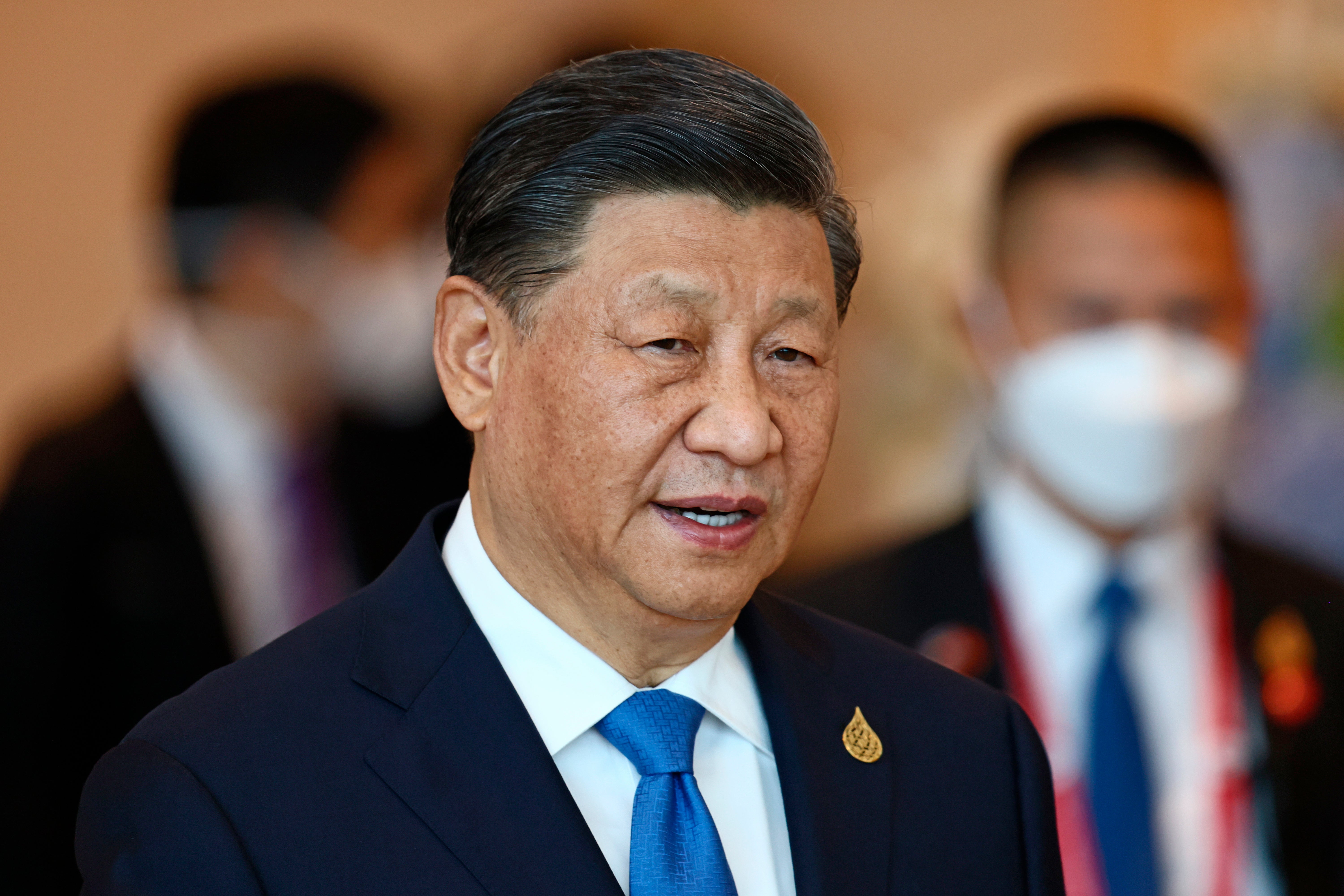China tries to act as mediator in Russia's war with Ukraine
Chinese leader Xi Jinping says Beijing will send an envoy to Ukraine to discuss a possible “political settlement” to Russia’s war with the country

Chinese leader Xi Jinping said on Wednesday that Beijing will send an envoy to Ukraine to discuss a possible “political settlement” to Russia’s war with the country.
Beijing has previously avoided involvement in conflicts between other countries but appears to be trying to assert itself as a global diplomatic force after arranging talks between Saudi Arabia and Iran in March that led to them restoring diplomatic relations after a seven-year break.
Xi told Ukrainian President Volodymyr Zelenskyy in a phone call that a Chinese envoy would visit Ukraine and “other countries” to discuss a possible political settlement, according to a government statement reported by state TV.
It made no mention of Russia or last year’s invasion of Ukraine. It also gave no indication of whether the Chinese envoy might visit Moscow.
The Xi-Zelenskyy phone call was long anticipated after Beijing said it wanted to be a mediator in the war.
WHY DOES THIS MATTER?
China is the only major government that has friendly relations with Moscow as well as economic leverage as the biggest buyer of Russian oil and gas after the United States and its allies cut off most purchases.
Beijing, which sees Moscow as a diplomatic partner in opposing U.S. domination of global affairs, has refused to criticize the invasion and used its status as one of five permanent U.N. Security Council members to deflect diplomatic attacks on Russia.
Zelenskyy earlier said he welcomed a Chinese offer to mediate.
WHY DID CHINA DO THIS?
Xi’s government has pursued a bigger role in global diplomacy as part of a campaign to restore China to what the ruling Communist Party sees as its rightful status as a political and economic leader and to build an international order that favors Beijing's interests.
That is a sharp reversal after decades of avoiding involvement in other countries’ conflicts and most international affairs while it focused on economic development at home.
In March, Saudi Arabia and Iran issued a surprise announcement, following talks in Beijing, that they would reopen embassies in each other’s capitals following a seven-year break. China has good relations with both as a big oil buyer.
Last week, Foreign Minister Qin Gang told his Israeli and Palestinian counterparts that his country is ready to help facilitate peace talks.
Wednesday's statement warned against the dangers of nuclear war, suggesting Beijing might also have been motivated by what it sees as the growing danger of a more destructive conflict.
Mediating between Ukraine and Russia would increase China’s presence in Eastern Europe, where Beijing has tried to build ties with other governments. That has prompted complaints by some European officials that China is trying to gain leverage over the European Union.
WHAT ARE CHINA’S RELATIONS WITH RUSSIA?
China is the closest thing President Vladimir Putin’s isolated government has to a major ally.
Xi and Putin issued a joint statement ahead of the February 2022 invasion that said their governments had a “no limits friendship.”
Beijing has tried to appear neutral but has repeated Russian justifications for the invasion.
Xi received a warm welcome from Putin during a visit to Moscow in March. The Chinese defense minister visited Russia this month.
China has stepped up purchases of Russian oil and gas for its energy-hungry economy, helping to offset lost revenue resulting from Western sanctions. In exchange, China gets lower prices, though details haven’t been disclosed.
WHAT ARE CHINA’S RELATIONS WITH UKRAINE?
China was Ukraine's biggest trading partner before the invasion, though on a smaller scale than Chinese-Russian trade.
In 2021, Ukraine announced plans for Chinese companies to build trade-related infrastructure.
Zelenskyy's government was more ambivalent toward Beijing after it was clear Xi wouldn't try to stop Putin's war, but the two sides have remained amicable.
Qin, the foreign minister, promised this month China wouldn't provide arms to either side, a pledge that benefits Ukraine, which has received tanks, rockets and other armaments from the United States and European governments.
The Chinese ambassador to France set off an uproar in Europe when he suggested former Soviet republics — a group that includes Ukraine — might not be sovereign nations. That was in line with Putin's comments denying Ukrainian sovereignty.
Beijing then reassured former Soviet states it respected their sovereignty and said the ambassador's comments were a personal opinion, not official policy.
Bookmark popover
Removed from bookmarks